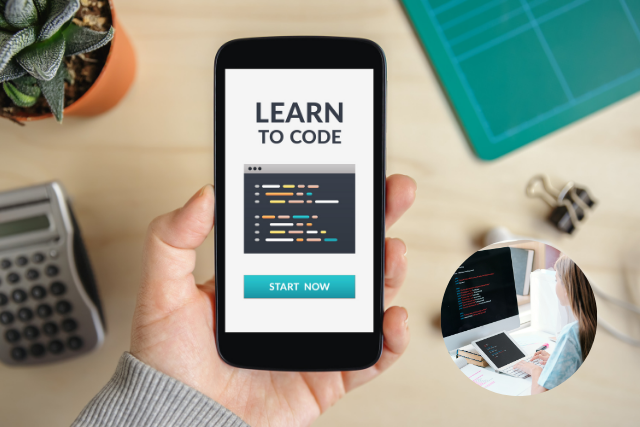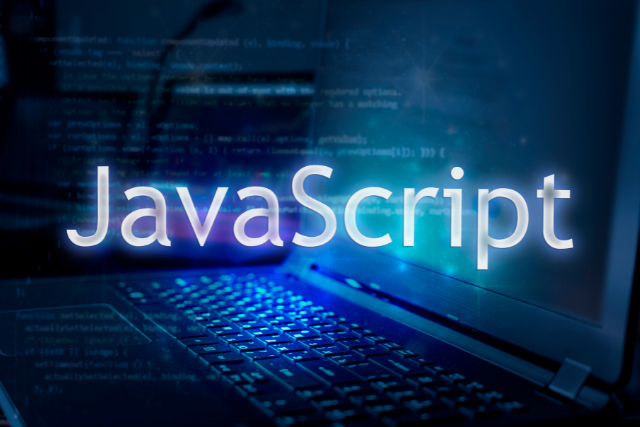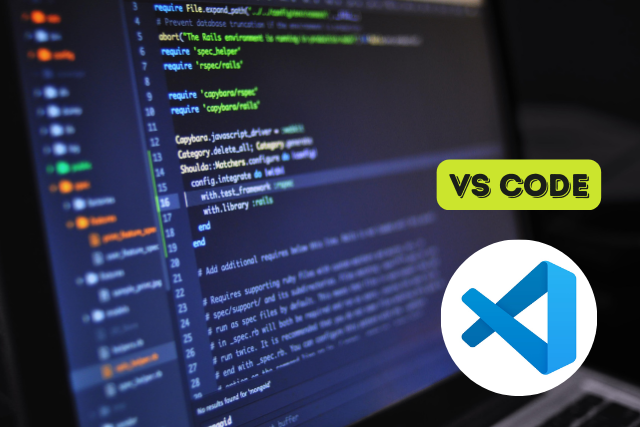Learning to code quickly and efficiently can open doors to numerous opportunities, whether aiming for a career change, enhancing your current skills, or simply curious about the world of programming. You can accelerate your learning process and achieve your coding goals with the right approach and resources.
This guide will provide you with a step-by-step approach to learning coding quickly and valuable resources to help you on your journey.
Set Clear Goals
Before diving into the world of coding, defining what you want to achieve is essential. Setting clear goals will help you focus your learning and choose the suitable programming languages and resources. Ask yourself the following questions:
- What is your primary motivation for learning to code?
- Are you interested in web development, data science, app development, or another field?
- What specific projects or tasks do you want to accomplish with coding skills?
A clear vision of your goals will guide your learning process and motivate you.
Choose the Right Programming Language
The choice of programming language depends on your goals and the field you’re interested in. Here are some recommendations based on different fields:
- Web Development: HTML, CSS, JavaScript
- Data Science: Python, R
- App Development: Swift (iOS), Kotlin (Android)
- General Purpose: Python, JavaScript
Web Development
Web development involves creating websites and web applications. Start with the basics of HTML and CSS to understand the structure and styling of web pages. Once you grasp these, move on to JavaScript for interactivity.
Data Science
Data science involves analyzing and interpreting complex data. Python and R are popular languages in this field due to their powerful libraries and ease of use. Begin with Python, which is known for its simplicity and versatility.
App Development
If you want to develop mobile apps, choose Swift for iOS and Kotlin for Android. Both languages are modern, powerful, and strongly supported by their respective communities.
General Purpose
Python and JavaScript are excellent choices for general-purpose programming. Python is known for its readability and extensive libraries, while JavaScript is essential for web development and has a vast ecosystem.
Use Online Learning Platforms
Several online platforms offer structured courses, interactive tutorials, and practical projects. These platforms can help you learn to code efficiently:
- Codecademy: Codecademy offers interactive courses for beginners and covers various programming languages and topics. The platform’s hands-on approach lets you write and test code directly in your browser.
- freeCodeCamp: freeCodeCamp provides project-based learning and certifications in web development, data visualization, and machine learning. The platform’s community support and real-world projects make it an excellent choice for learners.
- Coursera: Coursera partners with universities and organizations to offer university-level courses. You can find comprehensive coding courses from institutions like Stanford, MIT, and Google.
- Udemy: Udemy has various courses on various programming languages and technologies. Many courses are project-based and include practical exercises.
- edX: edX offers university-level courses from top institutions. The platform provides a mix of free and paid courses covering fundamental and advanced topics.
Follow a Structured Learning Path
A structured curriculum can help you cover the essentials without getting overwhelmed. Here’s an example of a learning path for web development:
Web Development Learning Path
- HTML and CSS: Start with the basics of HTML to understand the structure of web pages. Learn CSS to style your web pages and make them visually appealing. Codecademy’s HTML & CSS course is a great starting point.
- JavaScript: Move on to JavaScript to add interactivity to your web pages. JavaScript is a versatile language that powers the web. freeCodeCamp’s JavaScript Algorithms and Data Structures course is highly recommended.
- Frontend Frameworks: Learn a frontend framework like React, Angular, or Vue.js to build dynamic and responsive web applications. Udemy’s React – The Complete Guide is an excellent course for mastering React.
- Backend Development: Understand server-side programming with Node.js or Django. Learn how to build and manage databases with SQL or NoSQL databases. Coursera’s Web Development with Node.js and Express course is a great resource.
- Full-Stack Development: Combine your frontend and backend skills to become a full-stack developer. freeCodeCamp’s Full Stack Development Certification provides a comprehensive path from start to finish.
Data Science Learning Path
- Python Basics: Start with Python basics, including syntax, variables, and data types. Codecademy’s Learn Python course is perfect for beginners.
- Data Analysis: Learn data analysis with pandas, NumPy, and Matplotlib. Coursera’s Python for Data Science specialization covers these topics in depth.
- Machine Learning: Move on to machine learning with scikit-learn and TensorFlow. Udacity’s Intro to Machine Learning with PyTorch and TensorFlow course is highly recommended.
- Data Visualization: Learn data visualization with libraries like Matplotlib, Seaborn, and Plotly. Udemy’s Python for Data Science and Machine Learning Bootcamp covers these topics comprehensively.
Practice Regularly
Consistent practice is key to learning coding quickly. Aim to code daily, even if it’s just for 30 minutes. Regular practice helps reinforce concepts and improve your problem-solving skills. Here are some ways to practice coding:
- Coding Challenges: Participate in coding challenges on platforms like HackerRank, LeetCode, and Codewars. These platforms offer a variety of problems to solve, ranging from easy to difficult.
- Projects: Apply what you learn to real projects. Start with small projects and gradually increase their complexity. For example, build a personal portfolio website, a simple to-do list app, or analyze a dataset and visualize the results.
- Contribute to Open Source: Contributing to open source projects on GitHub is a great way to gain real-world experience and collaborate with other developers.
Build Projects
Building projects is one of the most effective ways to learn coding. Projects allow you to apply what you’ve learned practically and help you develop problem-solving skills. Here are some project ideas for different fields:
Web Development Projects
- Personal Portfolio Website: Create a website to showcase your skills, projects, and experience. Use HTML, CSS, and JavaScript to build a responsive and visually appealing site.
- To-Do List App: Build a simple to-do list application with JavaScript. Add features like adding, editing, deleting, and saving tasks to local storage.
- Weather App: Create a weather application that fetches data from a weather API and displays the current weather conditions for a given location.
- Blog Platform: Develop a full-featured blog platform with a frontend framework like React and a backend framework like Node.js or Django. Include features like user authentication, post creation, and comments.
Data Science Projects
- Data Analysis and Visualization: Analyze a dataset and create visualizations to present your findings. Use libraries like pandas, NumPy, Matplotlib, and Seaborn.
- Machine Learning Model: Build a machine learning model to solve a specific problem, such as predicting house prices or classifying images. Use scikit-learn, TensorFlow, or PyTorch.
- Web Scraping: Create a web scraper to collect data from websites and analyze it. Use libraries like BeautifulSoup and Scrapy.
- NLP Project: Develop a natural language processing project, such as sentiment analysis or text classification. Use libraries like NLTK and spaCy.
Join Coding Communities
Engage with online coding communities for support, motivation, and networking opportunities. Being part of a community can help you stay accountable and learn from others’ experiences. Here are some popular coding communities:
- Stack Overflow: Stack Overflow is a Q&A platform where you can ask questions and get answers from experienced developers. It’s an excellent resource for troubleshooting and learning best practices.
- GitHub: GitHub is a platform for hosting and collaborating on code projects. You can contribute to open source projects, share your own projects, and connect with other developers.
- Reddit: Subreddits like r/learnprogramming and r/coding are great places to ask questions, share resources, and discuss coding topics.
- freeCodeCamp Forum: The freeCodeCamp Forum is a supportive community where you can ask for help, share your projects, and connect with other learners.
Use Coding Challenges
Participating in coding challenges is a fun and effective way to test your skills and learn new techniques. Here are some platforms that offer coding challenges:
- HackerRank: HackerRank offers a wide range of coding challenges and competitions. You can solve problems in various domains, such as algorithms, data structures, and artificial intelligence.
- LeetCode: LeetCode provides a large collection of coding problems to help you prepare for technical interviews. The problems are categorized by difficulty and topic.
- Codewars: Codewars offers coding challenges in multiple languages. You can solve problems, earn ranks, and see how others have solved the same problems.
Read Documentation and Books
Familiarize yourself with official documentation and read books to deepen your understanding of programming concepts. Here are some recommended resources:
Documentation
- MDN Web Docs: MDN Web Docs is an excellent resource for web development documentation, including HTML, CSS, and JavaScript.
- Python Documentation: The official Python documentation provides comprehensive information on Python syntax, libraries, and modules.
- React Documentation: The React documentation covers everything you need to know about building applications with React.
Books
- JavaScript: “Eloquent JavaScript” by Marijn Haverbeke is a great book for learning JavaScript from the basics to advanced topics. You can read it online for free at eloquentjavascript.net.
- Python: “Automate the Boring Stuff with Python” by Al Sweigart is an excellent book for beginners. It focuses on practical programming tasks and is available for free at automatetheboringstuff.com.
- HTML/CSS: “HTML and CSS: Design and Build Websites” by Jon Duckett is a beautifully designed book that covers the fundamentals of HTML and CSS.
Apply for Internships or Freelance Projects
Gaining real-world experience is crucial for solidifying your coding skills. Apply for internships or freelance projects to apply your knowledge in practical scenarios. Here are some platforms to find opportunities:
- Upwork: Upwork is a popular platform for finding freelance projects in various fields, including web development, data science, and app development.
- Freelancer: Freelancer connects freelancers with clients looking for specific skills. You can find projects, submit proposals, and get paid.
- Internshala: Internshala is a platform that offers internships in various domains, including programming, web development, and data science.
Stay Updated
The tech industry evolves rapidly, so staying updated with the latest trends and technologies is essential. Follow blogs, subscribe to newsletters, and attend webinars to keep your knowledge current. Here are some recommended resources:
- Tech Blogs: Follow popular tech blogs like TechCrunch, Hacker Noon, and Smashing Magazine.
- Newsletters: Subscribe to newsletters like JavaScript Weekly, Python Weekly, and Data Science Weekly.
- Webinars and Conferences: Attend webinars and conferences to learn from industry experts. Platforms like Eventbrite and Meetup list tech-related events.
Don’t Be Afraid to Make Mistakes
Learning to code involves making mistakes and debugging. Embrace the learning process and don’t get discouraged by errors. Each mistake is an opportunity to learn and improve your skills. Here are some tips to help you overcome challenges:
- Break Down Problems: Divide complex problems into smaller, manageable tasks. This approach makes it easier to tackle and debug issues.
- Ask for Help: Don’t hesitate to seek help from online communities, mentors, or peers. Platforms like Stack Overflow and Reddit are excellent resources for finding solutions to coding problems.
- Practice Debugging: Learn debugging techniques and tools for your programming language. Debugging is an essential skill that will help you identify and fix issues efficiently.
Recommended Resources
Websites and Courses
- Codecademy: codecademy.com
- freeCodeCamp: freecodecamp.org
- Coursera: coursera.org
- Udemy: udemy.com
- edX: edx.org
Books
- JavaScript: “Eloquent JavaScript” by Marijn Haverbeke
- Python: “Automate the Boring Stuff with Python” by Al Sweigart
- HTML/CSS: “HTML and CSS: Design and Build Websites” by Jon Duckett
Tools and Platforms
- GitHub: Version control and project hosting – github.com
- Visual Studio Code: Lightweight code editor – code.visualstudio.com
- Repl.it: Online coding environment – replit.com
Communities
- Stack Overflow: stackoverflow.com
- Reddit: reddit.com/r/learnprogramming
- freeCodeCamp Forum: forum.freecodecamp.org
You can learn coding efficiently and effectively by following these steps and utilizing the recommended resources. Remember, consistency and practical application are key to mastering coding quickly. Good luck on your coding journey!







